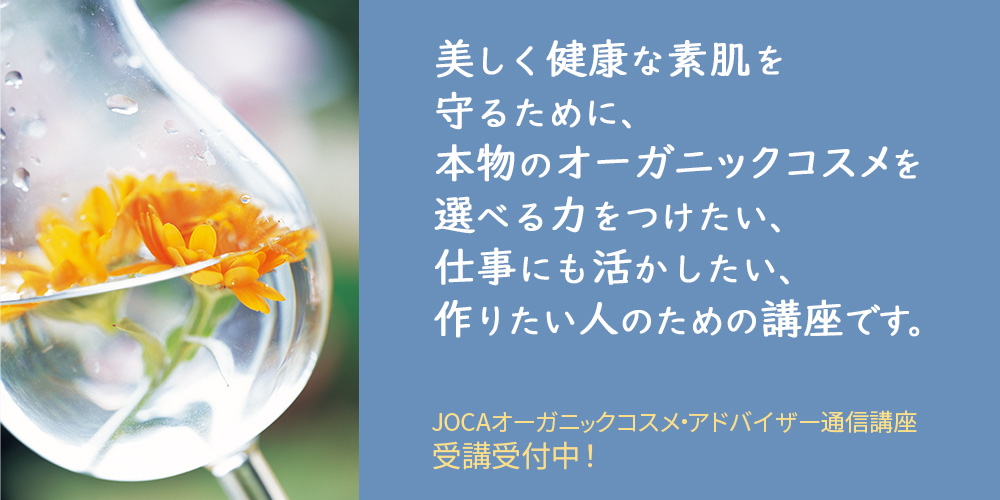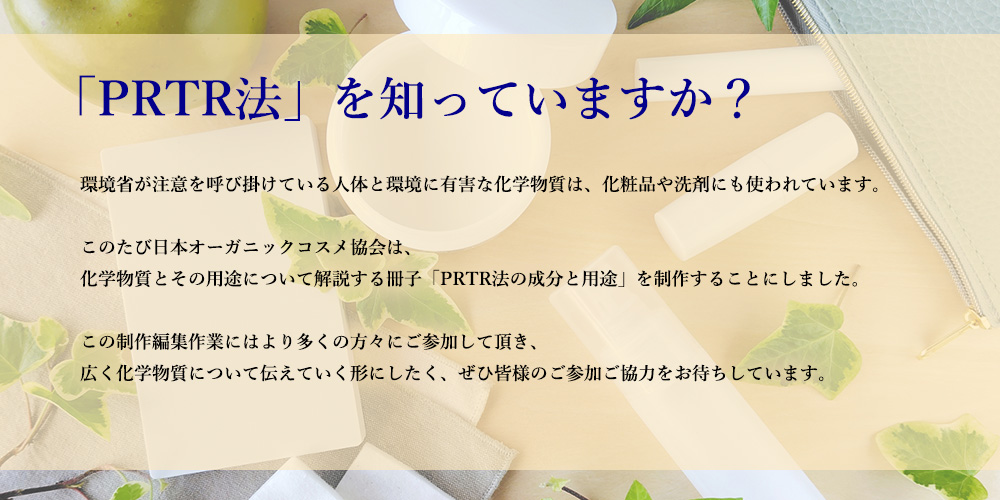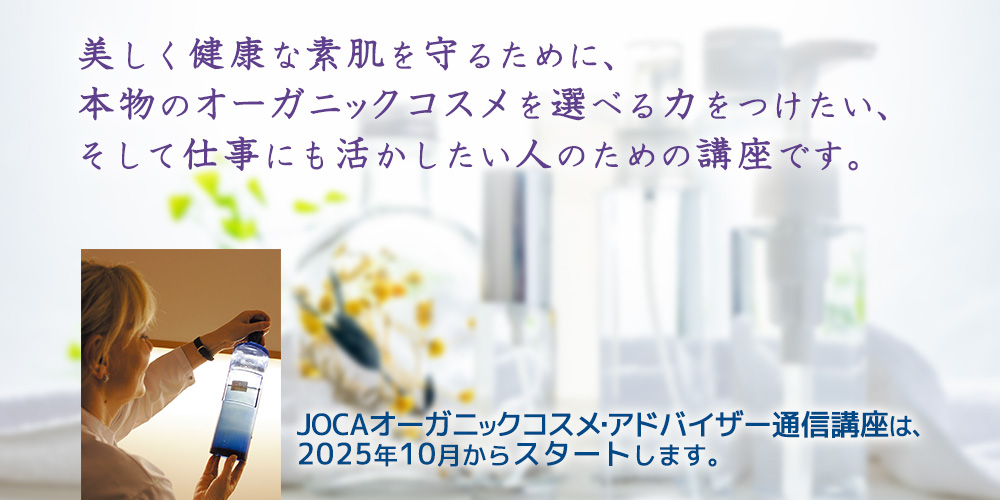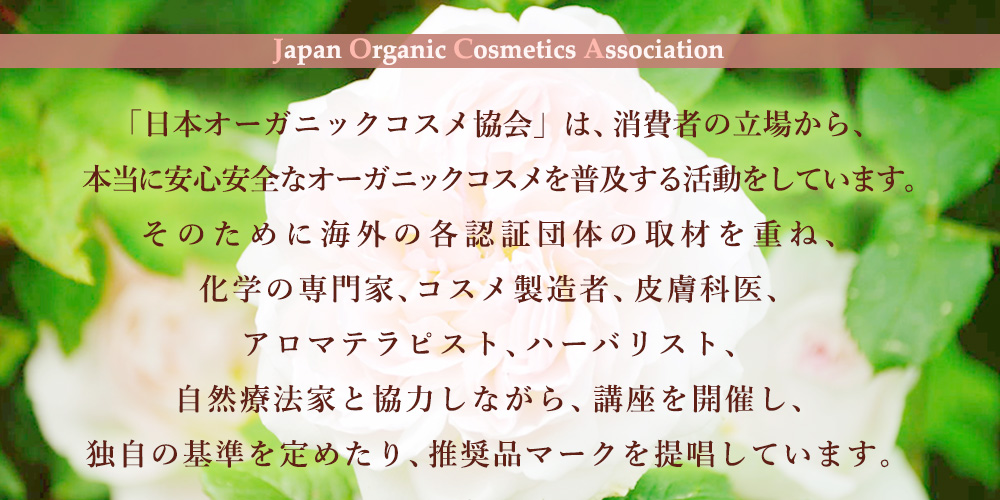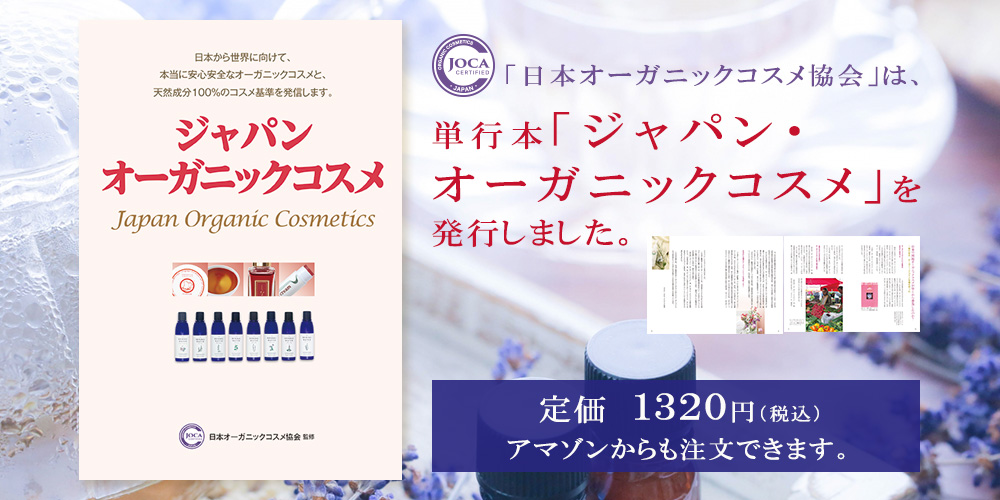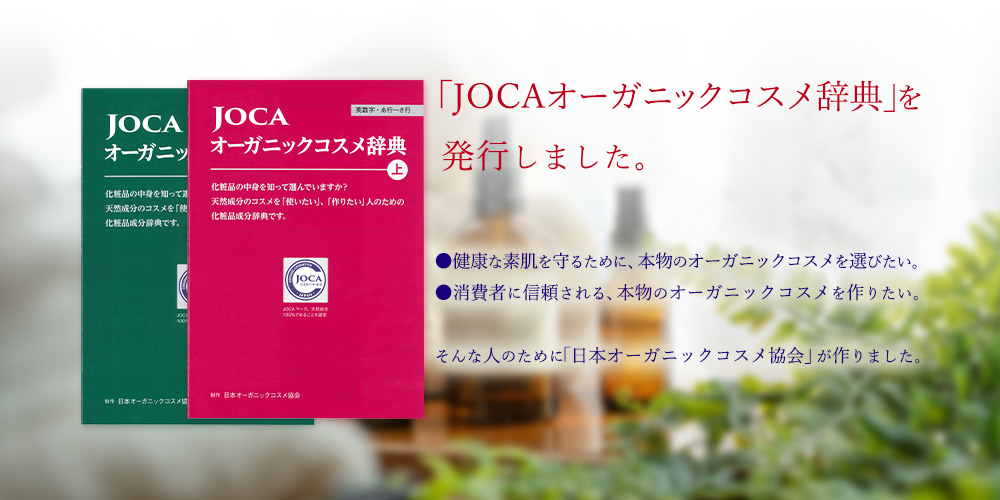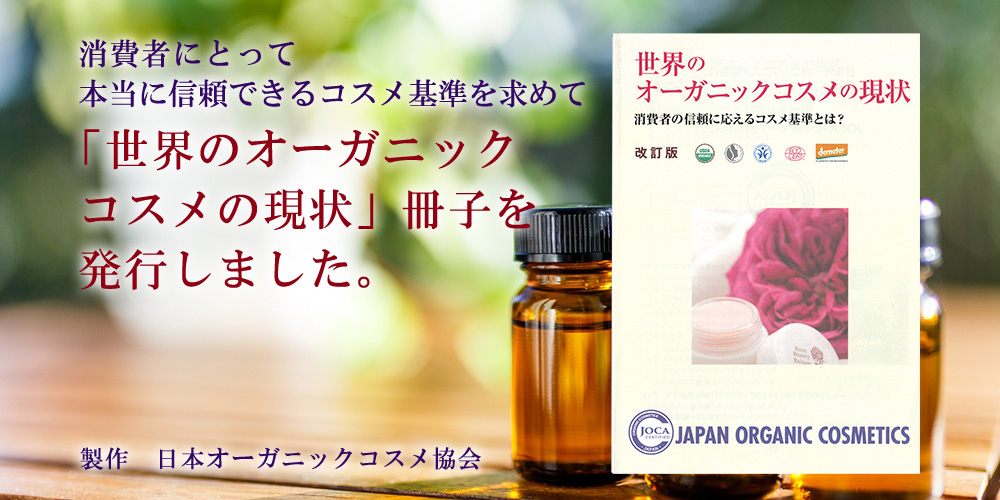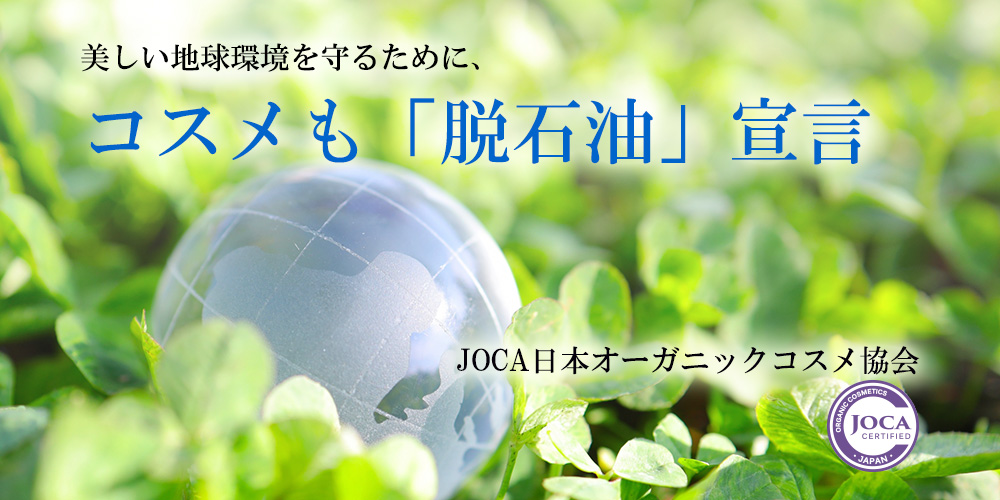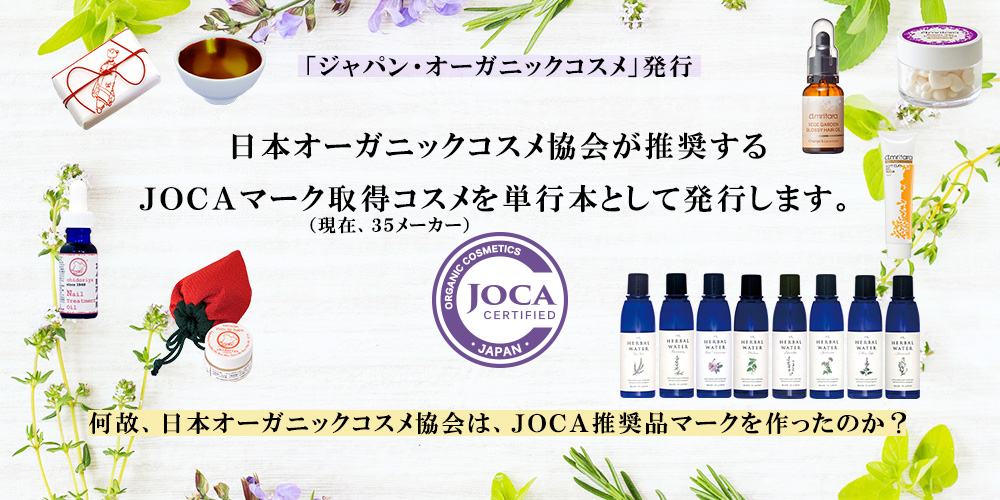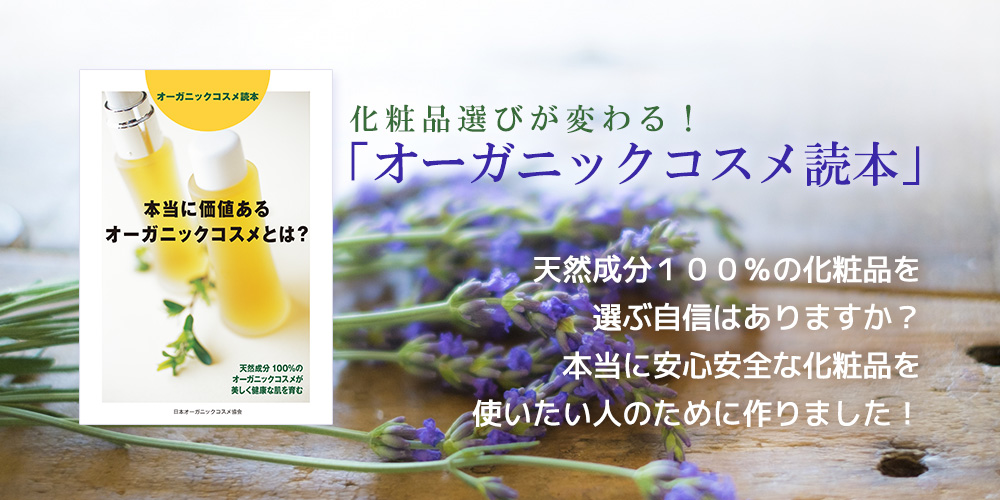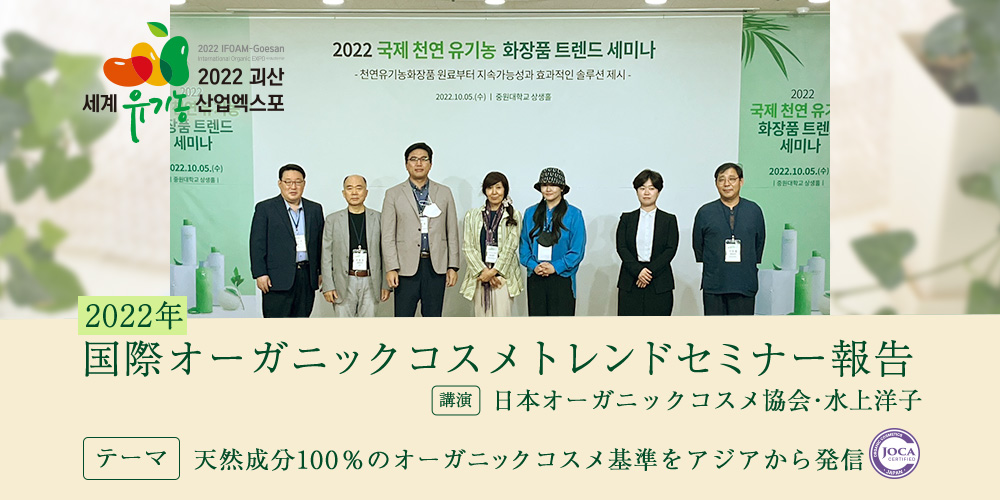1 基本原料について
「JOCA推奨品」に使われる、基本的な原料は、自然界で循環することが出来、自然界のバランスを壊すことがないものであることです。
- 石油と石油由来合成成分を使っていないこと。資源的に有限であり、かつ自然界にない合成成分のもととなった石油を使っていない原料であること。(また石油を使わないもうひとつの理由として温暖化防止への配慮もある)。
- 植物、粘土、鉱石類のように、自然界の中で生まれ、循環することができ、自然のバランスを壊す懸念のない原料であること。
- 人為的な化学的操作によって、もともとの自然の組成を変化させることで新たに作られた、自然界にない成分は「使用不可」とする。
- 石鹸のように、長年にわたって使われてきて、環境や肌に対して、無害であることがわかっている原料であること。
- 使用する植物については、認証取得の有無を問わず、できるかぎり農薬や化学肥料を使わずに栽培されたものであることが望ましい。あるいは野生植物を使用した原料であること。
- 植物由来であっても、本来の構造が高温高圧によって分解され、再合成されることによって、出来上がったものが自然界にない合成成分であるものは、「使用不可」とする。
- 完成品が、天然成分100%で製造されていること。
- 乳化方法について合成界面活性剤を使わずに天然成分で実現していること。
- 洗浄成分について合成界面活性剤を使わずに天然成分で実現していること。
- 防腐および保存性を高める方法について、合成防腐剤成分を使わずに天然成分で実現していること。
- 植物エキスの抽出、加工、漂白などにおいて、合成溶剤を使っていないこと。
※ 植物エキスの抽出溶剤は、「水、発酵醸造エタノール、植物油、グリセリン」など、天然成分の溶剤を使うことが条件になります。いっぽうで石油の合成成分(BG)などの溶剤の使用は認めていません。 - 植物エキスにキャリーオーバー成分が含まれていないこと、ただしキャリーオーバー成分が、天然成分である場合は、「使用可」とする。
※ 天然成分について
ここでは天然成分という言葉は、化粧品に使うことのできる安心安全な天然成分に限って使われています。そのため、あらかじめ人体に対して毒性があるもの(トリカブトなど)は含まれていません。また天然成分という意味は、植物原料から作られているということではなく、自然界にある本来の分子構造が化学処理などによって壊されていないものを指しています。 - 脊椎動物を殺傷しなければ得られない原料ではないこと。
例)鯨油、馬油、鶏のトサカから得られるヒアルロン酸、サメから得られるスクワレンなど。
※ただし殺傷しなくても得られる羊毛由来のラノリンなどは、動物愛護の精神を尊ぶEUの基準に準じて使用可としています。 - 近年、パームヤシ油の大量生産によって、アジア地域の森林破壊問題が懸念されているため、出来る限り油剤は、パームヤシ油以外の様々な種類の油剤を原料とすることを推奨します。
2 製造方法について
「JOCA推奨品」基準は、基本原料が天然成分であることに加えて、その製造方法及び製造過程においても合成成分を使わないことを求めています。
- JOCA推奨品は、製造過程において、工場内で使用する器材が合成成分に汚染されていないことを求めます。
- 工場内の環境が、揮発性の合成溶剤などによって、汚染されていないことを条件としています。
- 製造工場から外部に合成成分を排出するなど、環境に負担をかけない製造法を求めています。
- 原料及び完成品の殺菌消毒として、放射線などを使わないこと。
- 出来る限り、容器やパッケージが環境にとって負担とならないものを使用すること。
Standards for JOCA (Japan Organic Cosmetics Association) Recommended Products
1.Basic ingredients
Ingredients used in JOCA Recommended Products should be recyclable and help maintain the balance of nature.
- Petroleum and/or petroleum derived ingredients must not be used.
Sustainable materials should be used, and petroleum-derived ingredients avoided, with prevention of global climate change in mind. - Ingredients used should be biodegradable and should not affect ecological balance. Examples include natural materials such as plants, clay, and minerals.
- Newly created ingredients that are modified from their original composition and/or do not exist in nature are considered unusable. For example, in soaps the ingredients have been used traditionally for decades without any harms to the skin or environment.
- It is desirable to use plants that are grown without pesticides or chemical fertilizers, regardless of whether certification is acquired or not, and to use only wild plants.
- Ingredients whose original structure is decomposed by high temperature and/or pressure and are synthesized ingredients that do not exist in nature are unusable, even if they are derived from plants.
- The finished product must be made with 100% natural ingredients.
- Emulsification should be done with only natural ingredients, without any synthetic surfactants.
- Cleaning agents should be made with only natural ingredients without any synthetic surfactants.
- Only natural ingredients must be used to enhance antiseptic and preservative properties, without any synthetic preservative ingredients.
- Synthetic solvents must not be used for extracting, processing, bleaching or extracting the plant extracts.
- Solvents for extracting plant extracts must be made of natural ingredients such as water, fermented brew ethanol, vegetable oil, or glycerin. The use of any petroleum and/or petroleum-derived ingredients (BG) are not allowed.
- Carryover ingredients should not be found in the plant extract unless they are entirely natural.
※ Regarding Natural Ingredients
The term “Natural Ingredients” for cosmetics should stand for only safe and pure ingredients. Therefore, those which are known to be toxic to the human body (such as Aconite) are excluded.
In addition, the term “Natural Ingredients” is not just used to mean those made from plant raw materials, but refers to those in which the original molecular structure of the ingredient has not been destroyed by chemical treatment. - The following ingredients are unusable because the vertebrate is killed in order to obtain the ingredients: whale oil, horse oil, hyaluronic acid from Rooster combs, squalene from sharks, etc.
However, lanolin derived from wool obtained without killing the animals are allowed according to EU standards respecting the spirit of animal welfare. - In recent years, there have been concerns about deforestation in Asia due to the mass production of palm oil, so we recommend that, as far as possible, oil-based products should be made from raw materials other than palm oil.
2.Regarding the manufacturing process
The JOCA Recommended Products standard requires that the basic ingredients should be natural, and that no synthetic ingredients should be used in manufacturing methods and/or processes.
- The standard requires that the equipment used in the factory is not contaminated with any synthetic ingredients during the manufacturing process. The environment inside of the factory should not be contaminated by volatile synthetic solvents.
- The manufacturing methods used in the factory should not be a burden on the environment, such as discharging synthetic ingredients from manufacturing plants to the outside.
- Radiation must not be used for disinfection of ingredients and finished products.
- As much as possible, packaging/containers should be environmentally friendly and not cause a burden to the environment.




